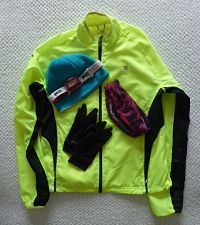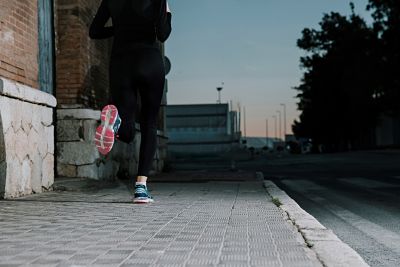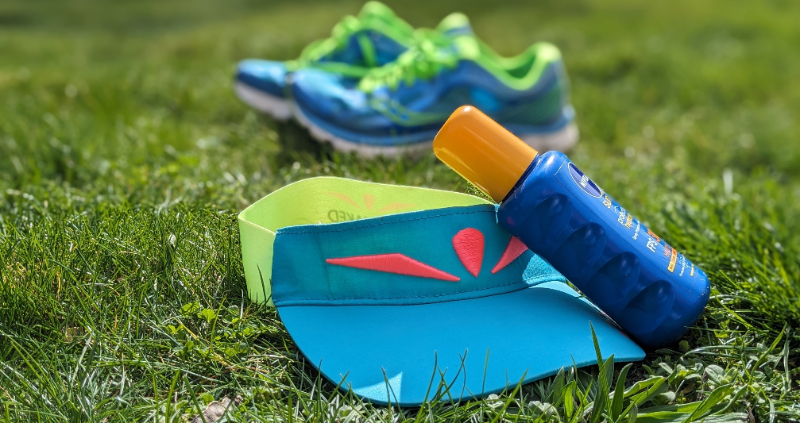Running in Cold Weather
I'm a bit of a wimp when it comes to running in cold weather but I'm gradually adapting and working out what works for me.
My main issues are cold hands and feet and earache, especially if it is windy. On the plus side, I've also realized how refreshing it can be and the feel good factor when I get home to the warm and dry is definitely worth it.
Dress Right when running in cold weather
The trick is to wear layers as the heat gets sandwiched in between each layer and so keeps you warmer. However you definitely don't want to over dress as after a couple of miles, your body will be pumping out heat. Dress as if it's about 10-15 degrees F warmer than the temperature outside.
Wear winter running socks if you have them or if not wear socks that are slightly thicker than your usual socks. Also keep fingers warm by wearing gloves. I have been know to run in woolly mittens but usually I wear mitten gloves as I suffer from Raynaud's syndrome.
If you suffer from cold ears, then a hat is a good buy but make sure it is not too big so that it doesn't fall down over your eyes with all that bouncing about.
Another must for running in cold weather is some sort of waterproof or wind proof jacket. You can get really light ones like mine below and I tend to wear a long sleeve top underneath and if it is 'really' cold then I'll wear a running vest under that too.
Waterproof vs Water Resistant - how they are measured.
 My winter running kit
My winter running kitBe Seen when running in cold weather
I never understand why so many people wear black in the winter. I try and do the opposite. As mornings and evenings tend to be quite dark, you definitely want cars and vehicles to see you so wear reflective gear on your outer layer and wear a running light if you know it will be dark. Click here to read about running safely.
Slip Sliding Away
Mud, mud glorious mud or perhaps ice and snow. Either way you need to be prepared. In winter, I tend to stick to paved roads but sometimes it is fun to go off on the trails.
Take it easy, forget the speed and keep alert for black ice and slippery areas. You also don't want to run too fast as your muscles might be cold and tight so more prone to injury.
Last Christmas my husband and I gave each other trail shoes but before that I used my ordinary running shoes. They were fine although I do think the trails shoes have given me a bit of extra confidence as they have a better grip. I am still not someone who can fly down muddy or rocky slopes and if they are wet and boggy as well, then I'm the one always at the back!
Many running shoe manufacturers offer winter/autumn and summer ranges. I agree that the winter/autumn shoes tend to be warmer and more waterproof but in reality, you don't need to have different shoes for different seasons. Just make sure to clean off any mud and to dry your shoes off properly when you get home.
Warm Up when running in cold weather
You should always warm up before any run so as to gradually get the blood flowing to your muscles (less chance of injury) and when it's cold it is even more important.
If you cant' brave going outside for a warm up, here are some other ideas: Run up and down the stairs a few times, jump rope or rush round the house tidying up!
Fluid Intake when running in cold weather
Although you think you might not get dehydrated when running in cold weather, you actually can. You might not sweat as much but you are still losing fluids.
Cold air contains less moisture than warm air so as you breathe out, the air grabs the moisture from your breath meaning your are losing fluids. Cold air is also efficient at wicking away moisture from your skin which makes you think that you haven't sweated that much. As a test, weigh yourself before and after your run. Any weight loss is fluid.
So drink before you head out the door and drink after the run and on long runs, take fluids with you.



